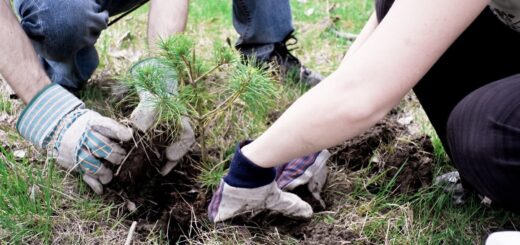Centre for Science and Environment: Save our Coasts

From left: Chandra Bhushan, Deputy Director General of CSE, Aurofilio Schiavina,, Coastal Management Consultant, PondyCAN, Sunita Narain, Director General, CSE, MD Fahir Qureshi from Pakistan, Anil Premaratne, Director General, Coast Conservation Department, Sri Lanka
Whoever had ever heard of beaches not being stationery, rather, as rivers of sand that are constantly on the move. To introduce us to this knowledge, the Centre for Science and Environment (CSE), New Delhi, and Pondicherry Citizen’s Action Network (PondyCAN) came together to organize a two day workshop, Save Our Coasts followed by a panel discussion on coastal concerns in India and other South Asian countries. Save Our Coasts was held at Atithi hotel in Pondicherry. The panel was presided by Padmashri Sunita Narain, Director General, CSE, India. Other members included Mr. Chandra Bhushan, Mr. MD Fahir Qureshi, Mr. Anil Premaratne, Director General, Coast Conservation Department, Sri Lanka and Mr. Aurofilio Schiavina, Coastal Management Consultant, PondyCAN, India.
Together they discussed the imminent threats to the coastal ecology of the South Asian countries. Sunita Narain, cited that the CSE Delhi was deeply concerned about the state of the beaches of South Asia and the governing bodies that are responsible for them. She admitted that the state of devastation seemed to be growing far ahead of the efforts that were being made to stop it. One of the key things, she said, that needs to be changed, is the governance system that manage natural resources, not just beaches, but all of them. She said that in the last few months an extensive research had been constructed to look at the South Asian region to see what the different countries are doing for the sake of coastal management. She laid stress on how the different countries of South Asia, who were united in their problems must unite in solutions also.
Chandra Bhushan, Deputy Director General of CSE, informed us that the South Asian coast was 11,240 km long, supported 400 million people, 50 billion dollars worth of tourism industry, 5 billion tons of fish products, more than 500 major and minor ports and numerous thermal power plants.
Bhushan talked about the workshops and the meetings that preceded the panel discussion. It had about 70 participants from India, Bangladesh, Pakistan, Sri Lanka and Maldives, Bhushan informed. Among the ones attending the meeting there were representatives from government, NGOs, researchers, and the media.
The meeting raised five key questions which were crucial for coastal management. They were:
- How do we better regulate coastal development?
- How do we ensure that livelihood dependent on coastland are enhanced and not compromised?
- How do we protect critical ecosystem and habitats?
- How do we integrate and manage coastal climate change?
- What can we learn from each other? What systems do we put in place for continuing the learning process?
Bhushan also talked about the special need for management of coast, because of groyne population, greater industrialization, urbanization and tourism. Groynes, as one may know, are the large rocks set on the beach to avoid short term coastal erosion. What they really do is transfer erosion from one coast to another. Because as already stated earlier beaches aren’t stationery. They are free flowing rivers of sand and the groynes only impede that natural movement of the beaches.
People living on the margins are going to be worst affected by the coastal damage all over South Asia. South Asia is going to be under duress due to developmental challenges on one hand and due to climate change on the other. Bhushan commented that the bodies monitoring and enforcing post-clearance are weak. Quick decisions are what is necessary to save our coasts.
Mr. Anil Premaratne mentioned that regulations alone do not help, just reports do not help. It is not a single but a two track approach that must be made in order to bring about the desired result that one wants to see fulfilled.
Mr. MD Fahir Qureshi from Pakistan, who is also known as the father of Mangroves in South Asia spoke about the usefulness of mangroves. He said that far from being the wasteland that they are considered, mangroves are highly useful and productive. They perform multiple functions like enriching the soil, protection of habitat, protection from cyclones, from hurricanes and tsunamis.
Mr. Qureshi also added that the mangrove ecosystem is under pressure and is slowly vanishing. Their resources are depleting. He held the inland pollution and all other kinds of pollution responsible for this resource depletion.
Aurofilio Schivia who is with Pondy CAN told us how India has a very soft coastline. He described how sand is always moving, with the help of waves. Waves are what he called the engines of sand transportation. Due to the groynes and the damage they cause, Tamil Nadu’s fishing hamlets have been losing homes. Last monsoon, Auroville lost a few homes. He said in recent times the Pondicherry – Tamil Nadu coastline has lost about 20 km of beaches. He said groynes are the solution when we try to fix the problem of erosion without understanding the larger picture.
Sunitha Narain mentioned later on in the panel discussion of a survey conducted by Tata Institute of Social Sciences about what is going on in India’s coastline. She also added that in trying to find a problem to soil erosion we transfer the problem from one to another and we keep thinking that we can build our way out of it. And the more we think it, the more we keep building and transferring the problem, which is in some sense the crises of environment today.
https://www.youtube.com/watch?v=hgUswBBmyx0
For more details please visit: Save Our Beach
Also visit: PondyCAN
Photos: Jaykishan R and Sathyabala G
Camera: Krishnaveni Ilanthirayan, Radhika Khanna, Sathyabala S
Edit: Habeeb Rahman
Tathagata Mitra
1st M.A. Mass Communication






